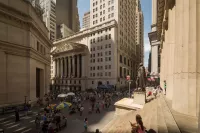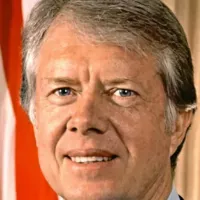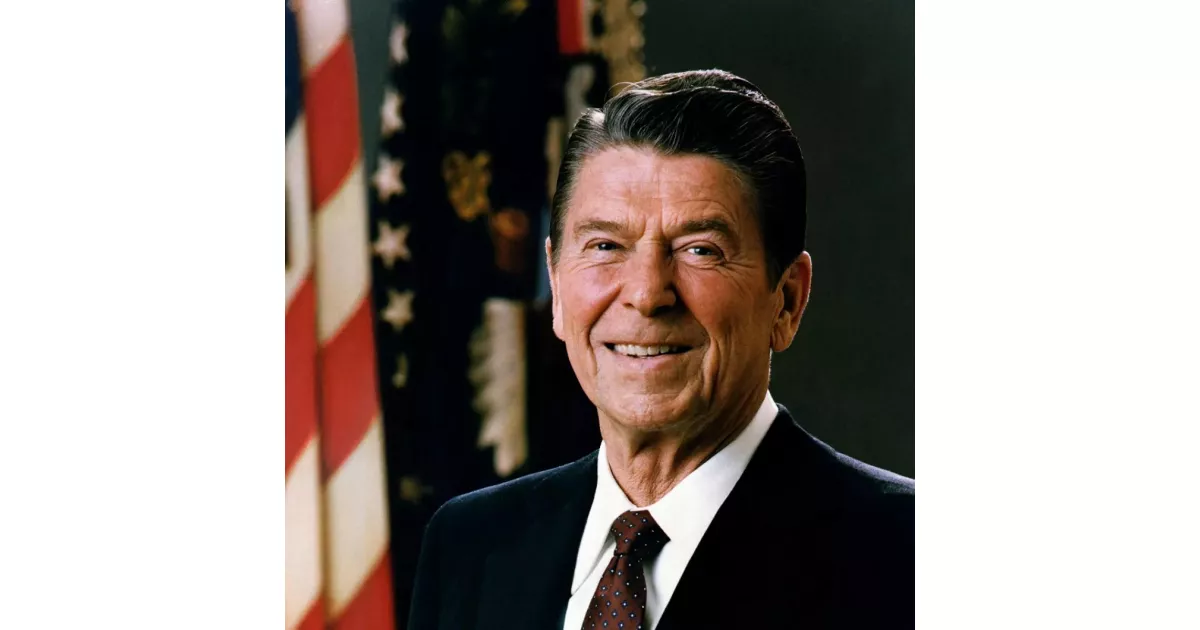A closer look at the most debated and controversial moments involving Ronald Reagan.
Ronald Reagan, the 40th U.S. President (1981-1989), was a pivotal figure in the American conservative movement. A Republican, he implemented supply-side economics, dubbed "Reaganomics," which aimed to reduce government spending and taxes to stimulate economic growth. Reagan strengthened the military, challenged the Soviet Union, and is credited by some with helping to end the Cold War. Domestically, he faced challenges like the AIDS epidemic and the Iran-Contra affair. Before his presidency, he was a Hollywood actor and Governor of California.
1945: Planned anti-nuclear rally
In 1945, Reagan planned to lead an anti-nuclear rally with HICCASP, but Warner Bros. prevented him from participating.
1961: Criticized Medicare
In 1961, Reagan adapted his speeches into another speech to criticize Medicare, viewing its legislation as a threat to "the end of individual freedom in the United States".
1967: Signed the Mulford Act
In 1967, Reagan signed the Mulford Act, which prohibited the public carrying of firearms, and the Therapeutic Abortion Act that allowed abortions in the cases of rape and incest. He later expressed regret over signing the Therapeutic Abortion Act.
February 5, 1969: Declared a state of emergency at Berkeley
On February 5, 1969, Reagan declared a state of emergency at the University of California, Berkeley in response to ongoing protests and violence, sending in the California Highway Patrol.
May 1969: Clash at People's Park
In May 1969, California Highway Patrol officers, along with local officers, clashed with protestors over People's Park. One student was shot and killed. Reagan commanded National Guard troops to occupy Berkeley for seventeen days.
February 1970: Deployed the National Guard
In February 1970, Reagan deployed the National Guard near the University of California, Santa Barbara, due to violent protests.
1980: 1980 Campaign Promise
During his time in office, Reagan never fulfilled his 1980 campaign promise of submitting a balanced budget.
1980: Reagan attempts to appeal to Black voters
In 1980, Ronald Reagan attempted to appeal to Black voters, but would receive the lowest Black vote for a Republican presidential candidate at the time.
August 1981: PATCO Strike and Firing
In August 1981, the Professional Air Traffic Controllers Organization (PATCO) went on strike. Reagan responded by firing roughly 12,000 striking air traffic controllers who did not return to work after 48 hours.
1981: Approved plan for Social Security cuts and Omnibus Budget Reconciliation Act of 1981
In 1981, Reagan approved a plan for cuts to Social Security in an effort to keep it solvent. He also signed the Omnibus Budget Reconciliation Act of 1981, cutting funding for federal assistance programs.
1982: Voting Rights Act extended
Despite Reagan having opposed the Voting Rights Act of 1965, the bill was extended for 25 years in 1982.
1982: Boland Amendment passed
In 1982, Congress passed the Boland Amendment, prohibiting the CIA and Department of Defense from using their budgets to aid the Contras in Nicaragua.
1982: Impeding Soviet Access to Hard Currency
In 1982, Reagan tried to cut off the Soviet Union's access to hard currency by impeding its proposed gas line to Western Europe, which hurt the Soviet economy but also caused ill will among American allies.
1982: Garn–St. Germain Depository Institutions Act
The 1982 Garn–St. Germain Depository Institutions Act deregulated savings and loan associations, leading to riskier activities and contributing to the savings and loan crisis.
March 1983: 'Evil Empire' Speech
During a speech to the National Association of Evangelicals in March 1983, Reagan referred to the Soviet Union as "the evil empire".
March 1983: Strategic Defense Initiative (SDI) introduced
In March 1983, Reagan introduced the Strategic Defense Initiative (SDI) to protect the United States from space intercontinental ballistic missiles, which became known as "Star Wars".
1983: Signed bill to create Martin Luther King Jr. Day
In 1983, Reagan signed a bill to create Martin Luther King Jr. Day after it passed both houses of Congress with veto-proof margins, despite his initial opposition.
1983: Carter's debate briefing book obtained
In 1983, Reagan's campaign managers were revealed to having obtained Carter's debate briefing book before the debates.
1984: Federal spending on AIDS
Between the fiscal years of 1984 and 1989, federal spending on AIDS totaled $5.6 billion.
September 1985: Reagan calls AIDS research a "top priority"
In a September 1985 press conference, following Rock Hudson's AIDS diagnosis announcement, Reagan called a government AIDS research program a "top priority", while also citing budgetary constraints.
September 18, 1985: Reagan does not mention AIDS in public
Between September 18, 1985, and February 4, 1986, Reagan did not mention AIDS in public.
1985: Imposition of new sanctions on South Africa
In late 1985, Reagan announced the imposition of new sanctions on the South African government, including an arms embargo, but these were viewed as weak by anti-apartheid activists.
February 4, 1986: Reagan does not mention AIDS in public
Between September 18, 1985, and February 4, 1986, Reagan did not mention AIDS in public.
April 5, 1986: West Berlin discotheque bombing
On April 5, 1986, the West Berlin discotheque bombing, which killed an American soldier and injured others, revived contentious relations between Libya and the United States under President Reagan.
November 1986: Iran-Contra Affair exposed
In early November 1986, the Iran-Contra transactions were exposed by Ash-Shiraa, leading to initial denials from Reagan, followed by announcements of resignations and investigations.
1986: Congress approves Comprehensive Anti-Apartheid Act
In 1986, Congress approved the Comprehensive Anti-Apartheid Act, which included tougher sanctions, overriding Reagan's veto.
1986: Reagan requests report on AIDS
In 1986, Reagan tasked C. Everett Koop with developing a report on AIDS, leading to recommendations for sex education and condom usage, which angered some conservatives.
1986: Anti-Drug Abuse Act of 1986 signed
Reagan signed the Anti-Drug Abuse Act of 1986, which specified penalties for drug offenses.
February 1987: Release of the Tower Commission report
In February 1987, the Tower Commission released its report confirming the administration had traded arms for hostages and sent the proceeds to the Contras, damaging Reagan's credibility and raising questions about his competency.
May 17, 1987: Iraqi jet hits USS Stark
On May 17, 1987, during the Tanker War, an Iraqi fighter jet hit the USS Stark with two Exocet missiles, killing 37 sailors.
1987: Robert Bork Nomination
In 1987, Reagan unsuccessfully nominated Robert Bork to the Supreme Court as a way to achieve his civil rights policy.
1987: Veto of Civil Rights Restoration Act
In 1987, Reagan vetoed the Civil Rights Restoration Act.
March 1988: Veto of Civil Rights Restoration Act of 1987
In March 1988, Reagan vetoed the Civil Rights Restoration Act of 1987, arguing that it unreasonably increased the federal government's power and undermined the rights of churches and business owners, but Congress overrode his veto.
1988: Signed the Anti-Drug Abuse Act of 1988 and Study on illegal drug use
In 1988, Reagan signed the Anti-Drug Abuse Act of 1988 to specify penalties for drug offenses and a study showed 39 percent of high school seniors using illegal drugs compared to 53 percent in 1980.
1989: Federal spending on AIDS
Between the fiscal years of 1984 and 1989, federal spending on AIDS totaled $5.6 billion.
1989: Reagan speaks out about gun control
In 1989, Ronald Reagan made his first public appearance after leaving office and shortly after the Stockton schoolyard shooting, he stated his views on gun control.
Mentioned in this timeline

Martin Luther King Jr was a pivotal leader in the...
California is a U S state on the Pacific Coast...

The stock market is where buyers and sellers trade stocks...
The Union of Soviet Socialist Republics USSR existed from to...

Washington D C is the capital city and federal district...

Jimmy Carter the th U S President - was a...
Trending

9 minutes ago Official Pokémon LEGO Sets Launch Worldwide on Pokémon Day 2026!

9 minutes ago Scream 7 Premiere Sees Protests After Melissa Barrera's Firing; Cast Reunites.

10 minutes ago Stock market plunges after PPI inflation data; Dow, S&P 500, Nasdaq decline.
10 minutes ago US advises embassy staff to leave Israel amid Iran strike threats, urging speed.

10 minutes ago IndyCar Season Opens in St. Petersburg: O'Ward and Palou in Focus.

10 minutes ago Norah O'Donnell Back on CBS Mornings, Highlights Women in 'We the Women'
Popular

Jesse Jackson is an American civil rights activist politician and...

Barack Obama the th U S President - was the...

Susan Rice is an American diplomat and public official prominent...

XXXTentacion born Jahseh Dwayne Ricardo Onfroy was a controversial yet...

Michael Joseph Jackson the King of Pop was a highly...

Kashyap Pramod Patel is an American lawyer who became the...
